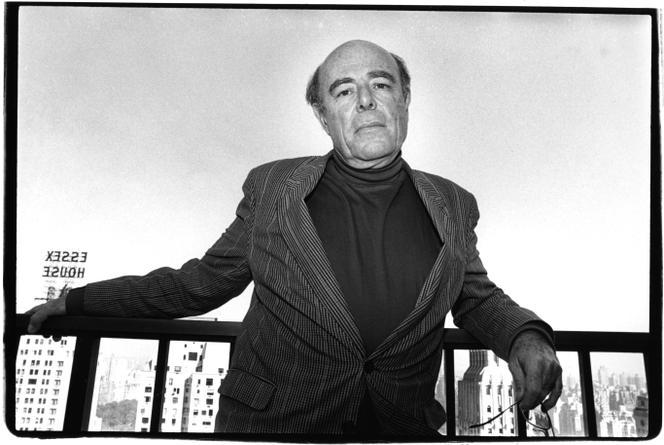Remembering Marcel Ophuls: A Trailblazer in Documentary Filmmaking and Historical Truth
Marcel Ophuls: A Visionary Who Redefined National Memory Through Film
Marcel Ophuls, the distinguished filmmaker whose courageous documentaries peeled back the layers of France’s World War II past, has died at 97. Celebrated for his Oscar-winning films, Ophuls devoted his life to unveiling uncomfortable realities and challenging collective amnesia. His work not only transformed documentary cinema but also provoked vital conversations about France’s wartime history, leaving a lasting imprint on cultural and historical discourse worldwide.
Ophuls’ signature approach combined rigorous archival investigation with deeply personal interviews, creating films that were as much emotional explorations as they were historical examinations. His documentaries demanded audiences confront arduous truths rather than seek comforting narratives. Among his most influential works are:
- The Sorrow and the Pity (1969) – a pioneering study of the complexities surrounding Vichy France’s collaboration with Nazi Germany
- Hotel Terminus: The Life and Times of Klaus Barbie (1988) – an Oscar-winning exposé on the notorious Nazi war criminal’s evasion of justice
- Recall to Memory (1992) – a probing look at Germany’s struggle to come to terms with its past
Unveiling France’s Wartime Realities: Ophuls’ Impact on Historical Awareness
Marcel Ophuls revolutionized documentary filmmaking by fearlessly addressing France’s fraught World War II legacy. His films meticulously dissected the intertwined themes of collaboration, resistance, and denial, challenging the sanitized national narratives that had long dominated public consciousness. Through a compelling mix of firsthand accounts, archival footage, and incisive analysis, Ophuls compelled viewers to face the uncomfortable truths about the Vichy regime’s complicity in Nazi crimes. His work sparked heated debates that extended well beyond cinema, influencing political and social discourse.
Ophuls’ documentaries serve as crucial historical records and cinematic milestones, illuminating the moral complexities faced by individuals and institutions during wartime. The following table highlights key films and their profound societal impacts:
| Film | Focus | Cultural Impact |
|---|---|---|
| The Sorrow and the Pity | Collaboration in Vichy France | Debunked myths, ignited national self-examination |
| Hotel Terminus | Klaus Barbie’s war crimes and trial | Humanized the complexities of justice post-WWII |
| Justice for Serge | Cold War espionage and political intrigue | Revealed covert political struggles |
- Fearless storytelling: Ophuls brought to light narratives often omitted from official histories.
- Stimulating public discourse: His films provoked widespread reflection on collective memory and duty.
- Innovative documentary techniques: He pioneered the integration of extensive interviews with rich archival materials.
Crafting Historical Narratives That Resonate Across Generations
Marcel Ophuls’ work transcended customary filmmaking, serving as a profound act of historical reckoning. By confronting France’s wartime silence and denial, he dismantled sanitized versions of history and gave voice to those marginalized by official accounts. His documentaries emphasized that grappling with history requires embracing its complexities rather than glossing over uncomfortable facts.
Through a masterful blend of detailed research and emotionally charged storytelling, Ophuls created films that did more than document events—they invited audiences to engage in critical reflection and ongoing dialog. His key contributions include:
- Unvarnished testimonies: Elevating survivor and eyewitness stories that had long been suppressed or ignored.
- Deep analytical insight: Weaving together personal experiences and political contexts to offer nuanced perspectives.
- Enduring influence: Shaping how future generations understand and engage with historical memory and ethical questions.
| Documentary | Theme | Legacy |
|---|---|---|
| The Sorrow and the Pity | French collaboration and resistance during WWII | Provoked national self-examination and dialogue |
| Hotel Terminus | Klaus Barbie’s war crimes and post-war justice | Exposed failures in addressing war crimes |
Inspiration for Contemporary Filmmakers: Upholding Integrity and Bravery in Storytelling
Marcel Ophuls’ career stands as a testament to the power of cinema as a tool for moral inquiry and historical accountability. Today’s filmmakers can learn from his unwavering dedication to boldly confronting difficult truths, even when such truths challenge entrenched national myths or collective memories. Ophuls showed that true storytelling integrity involves resisting oversimplification and instead presenting layered, honest perspectives that foster empathy and understanding.
In an era dominated by fast-paced media and sensationalism, Ophuls’ meticulous and patient approach offers a valuable model. His documentaries illustrate how filmmakers can:
- Center authentic voices: Ground narratives in primary sources and firsthand testimonies.
- Use film as a mirror for society: Highlight moral complexities rather than offering simplistic conclusions.
- Embrace responsibility: Shape cultural memory thoughtfully through careful narrative choices.
- Challenge myths sensitively: Question prevailing stories without alienating audiences.
Final Reflections
The passing of Marcel Ophuls at 97 closes a chapter on a remarkable career devoted to unveiling difficult truths and reshaping how history is remembered. Through his pioneering documentaries, he compelled France and the global community to confront the tangled realities of World War II, including collaboration, resistance, and the pursuit of justice. Ophuls leaves behind a profound cinematic legacy that continues to inspire critical reflection and dialogue about one of history’s most turbulent periods.His contributions to both film and collective memory will endure as a beacon for truth and courage in storytelling.









